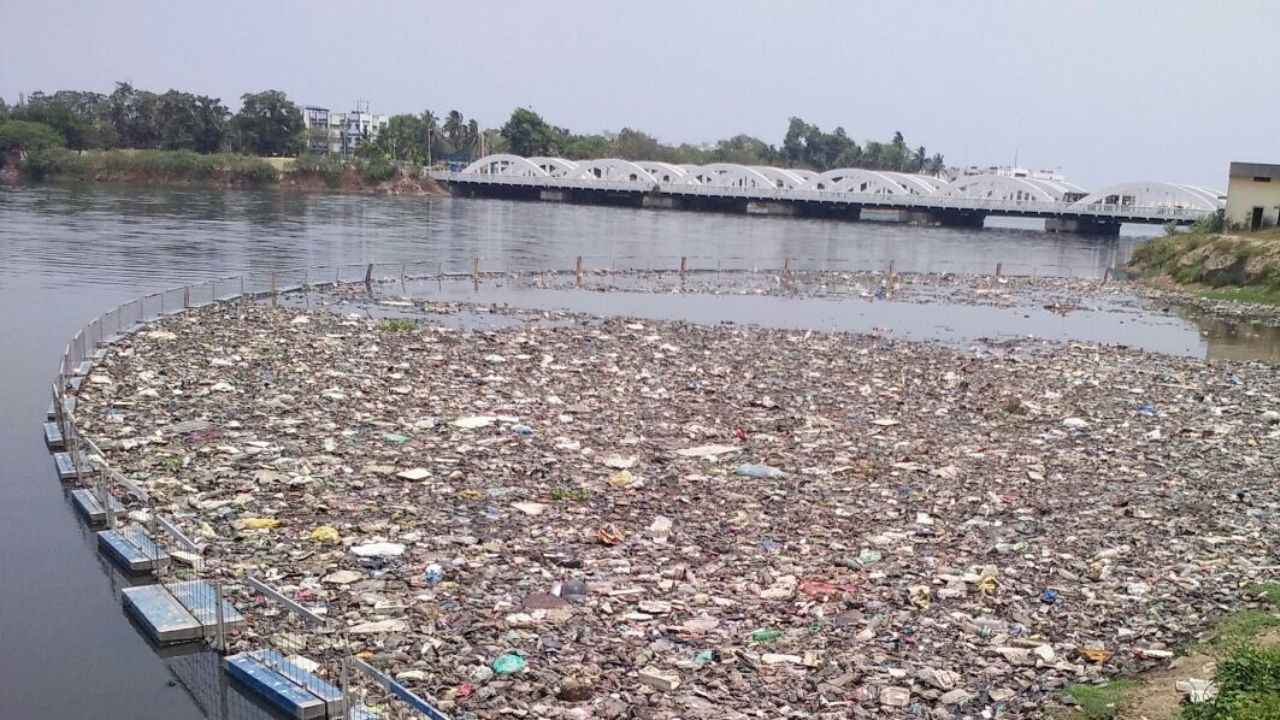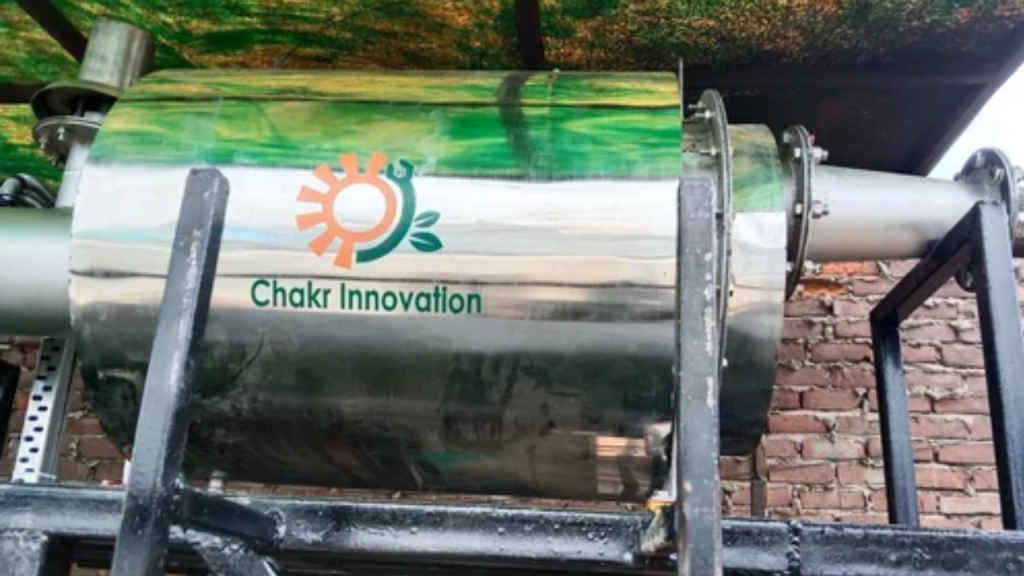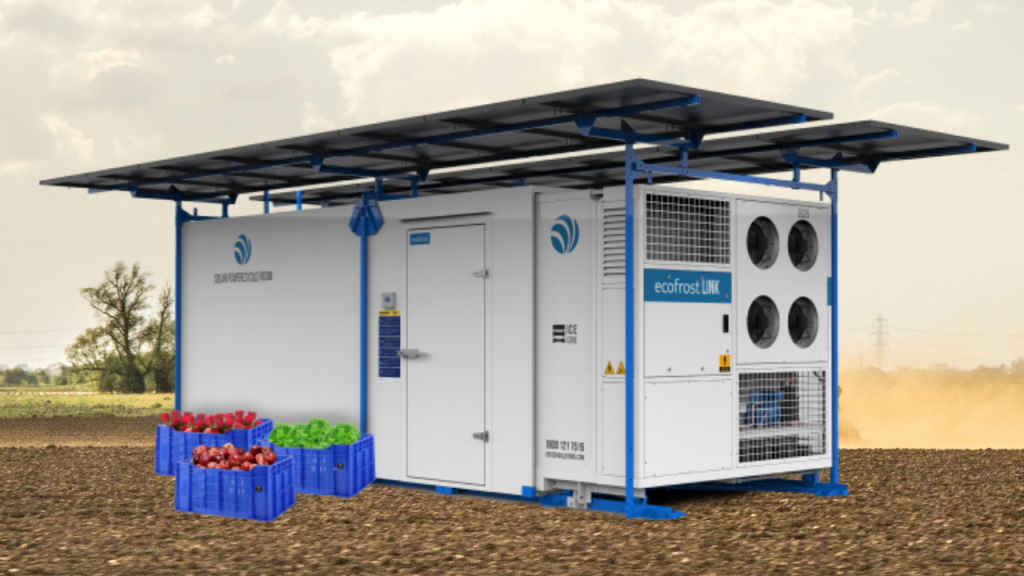5 Indian Green Tech Startups Driving Environmental Innovation
Indian green tech startups are tackling pollution, waste, and energy challenges effectively
From river cleanup to sustainable energy, these startups are making use of indigenous tech
On World Environment Day 2025, these Indian green tech startups are helping drive sustainability and climate goals

As the world comes to terms with escalating climate change and environmental degradation, India stands at a critical juncture on this World Environment Day 2025. Home to some of the world’s most polluted cities, depleting water sources, and mounting agricultural challenges, the country faces a complex sustainability puzzle. Yet, amid these challenges, a new generation of Indian startups is offering hope – with tech-driven, scalable, and locally adapted solutions to some of the planet’s most pressing environmental problems.
 Survey
SurveyThis feature shines a spotlight on five such startups – AlphaMERS Ltd, Chakr Innovation, Log9 Materials, Ecozen Solutions, and Devic Earth – who aren’t only redefining the role of technology in environmental protection but are also helping India meet its climate commitments and SDG or sustainable development goals.
1. AlphaMERS Ltd: Engineering a Cleaner Future for India’s Rivers and Oceans

Water pollution is one of India’s gravest ecological threats. Every year, thousands of tonnes of plastic waste flow from rivers into the oceans, harming marine life, disrupting ecosystems, and damaging coastal economies. AlphaMERS Ltd, a Bengaluru-based startup, is tackling this head-on with inventive marine engineering.
Also read: Meet AlphaMERS, India’s river cleaning tech expert
Their signature innovation is all about one thing: Floating Trash Barriers – a deceptively simple but technologically advanced solution that intercepts plastic and debris in rivers before they reach larger water bodies. These barriers are self-adjusting, weather-resistant, and require minimal maintenance.
Deployed in multiple Indian cities, they’ve already helped remove hundreds of tonnes of plastic waste from rivers like the Ganga and Mithi. AlphaMERS’ barriers have helped keep thousands of kilograms of plastic from reaching the ocean, directly contributing to marine biodiversity protection and coastal resilience.
In addition, AlphaMERS has developed oil spill containment and recovery systems used by ports and coast guards. By combining hydrodynamic modeling, materials science, and automation, AlphaMERS is positioning itself as a crucial player in India’s marine sustainability efforts.
2. Chakr Innovation: From Diesel Pollution to Eco-Friendly Ink
Founded by IIT Delhi alumni, Chakr Innovation is a powerful example of how innovation can transform a major pollutant into a useful product. Their flagship product, the Chakr Shield, is a retrofit emission control device designed for diesel generators. In cities like Delhi – where power backup is often needed and diesel gensets are widely used – this has enormous implications.

The Chakr Shield captures over 80% of particulate matter emissions (soot) right at the source. But it doesn’t stop there. Rather than disposing of the captured pollutants as waste, the startup upcycles the soot into eco-friendly inks and paints, used in packaging, textiles, and art materials.
Deployed across hundreds of generators in Indian cities, Chakr’s solution has prevented tons of PM emissions from entering the air, while creating new green jobs in the process. This approach exemplifies the principles of circular economy and industrial symbiosis, where waste from one system becomes input for another. It also allows companies to meet pollution norms without halting operations.
3. Log9 Materials: Accelerating the EV Revolution in Indian Conditions
As India pushes for widespread EV adoption to combat vehicular pollution and reduce fossil fuel dependence, one of the biggest bottlenecks is battery technology. Enter Log9 Materials, a Bengaluru-based startup developing advanced aluminum-air fuel cells and rapid-charging lithium-ion batteries specifically designed for Indian conditions – high temperatures, varied terrain, and power constraints.
Unlike conventional lithium-ion batteries, Log9’s RapidX batteries can be charged in 15–20 minutes and are more thermally stable, making them ideal for delivery vehicles, commercial fleets, and rural use cases. Log9’s technology powers electric 3-wheelers and delivery vehicles for companies like Amazon, Flipkart, and BigBasket, reducing fleet emissions and improving operational efficiency.
Also read: InnoWin Day: How Praan and Ishitva Robotic Systems are fighting air and plastic pollution with AI
Their aluminum fuel cell technology, meanwhile, promises a zero-emission power source that is safe, scalable, and capable of supporting long-range energy needs. These innovations could be game-changers for India’s logistics, mobility, and power backup sectors.
4. Ecozen Solutions: Cooling India’s Farms with Solar Power
India loses an estimated 30-40% of its fruits and vegetables post-harvest due to inadequate cold storage and transport infrastructure. This leads not only to financial losses for farmers but also to significant carbon emissions from food waste.
Ecozen Solutions, based in Pune, has stepped into this gap with solar-powered cold storage systems and smart pump controllers that operate efficiently even in off-grid rural settings. Their core products – Ecofrost (solar cold rooms) and Ecotron (smart solar irrigation pump controller) – leverage IoT, AI, and renewable energy to deliver affordable and sustainable solutions to farmers. Ecozen has reached over 70,000 farmers and saved over 20,000 metric tonnes of CO₂ equivalent annually by displacing fossil fuel-powered alternatives.

The systems are portable, plug-and-play, and equipped with remote monitoring capabilities. This ensures minimal maintenance, better energy use, and maximized shelf life for perishable produce – all while significantly reducing the use of diesel and grid electricity.
5. Devic Earth: Purifying Urban Air with Smart, Scalable Tech
Air pollution in Indian cities is a silent crisis. With levels of PM2.5 and PM10 regularly exceeding WHO limits, respiratory diseases and poor quality of life have become everyday realities. Devic Earth, founded by Dr. Srikanth Sola – a former cardiologist turned entrepreneur – is taking a high-tech approach to solving this issue.
Their patented product, Pure Skies, is a Wi-Fi-enabled air purification system designed for large-scale environments like factories, industrial parks, hospitals, and urban outdoor areas. Using radio wave-based pulsed emissions, Pure Skies accelerates the natural settling of airborne particles without using filters or chemicals. Pure Skies has been installed in cities like Bengaluru and Hyderabad and in facilities of multinational corporations, improving indoor and outdoor air quality for thousands of people.
The system is data-driven, allowing real-time air quality tracking and intelligent modulation of operation. Deployed in areas with high air pollution, it has been shown to reduce particulate levels by 30-60% within weeks of installation.
A Tipping Point for Green Innovation
Together, these startups represent a growing ecosystem of climate tech innovation in India. They bridge the gap between environmental necessity and technological possibility, offering solutions that are:
- Affordable and scalable
- Tailored to local
- Technologically advanced yet user-
- Focused on long-term sustainability and measurable impact
As India continues to urbanize, industrialize, and digitalize, such homegrown innovations are vital for ensuring that development does not come at the cost of environmental health. Moreover, these startups are contributing to India’s commitments under the Paris Agreement and the UN Sustainable Development Goals, while also fostering green entrepreneurship and job creation.
Ultimately, it’s important to realise this on World Environment Day 2025. Environmental degradation may be a global challenge, but its most effective solutions are often local. From smart batteries to river barriers, solar cold rooms to industrial air purifiers, these five Indian startups offer blueprints for environmental resilience that can be adapted worldwide.
As government, industry, and civil society increasingly turn their attention to sustainability, the work of AlphaMERS, Chakr Innovation, Log9 Materials, Ecozen, and Devic Earth proves that technology, when thoughtfully applied, can be one of our most powerful tools for healing the planet.
Also read: From IIT to Infosys: India’s AI revolution gains momentum, as 7 new members join AI Alliance
Vyom Ramani
A journalist with a soft spot for tech, games, and things that go beep. While waiting for a delayed metro or rebooting his brain, you’ll find him solving Rubik’s Cubes, bingeing F1, or hunting for the next great snack. View Full Profile